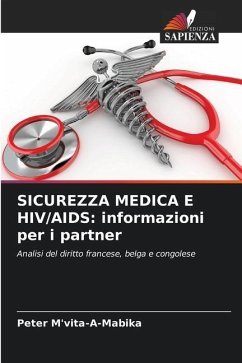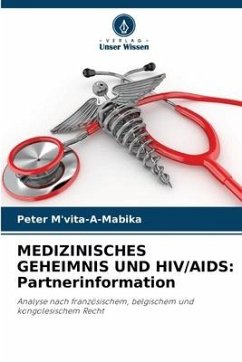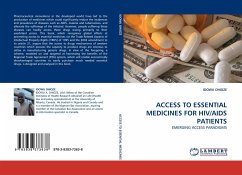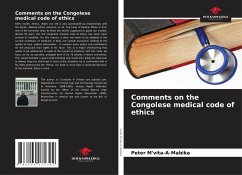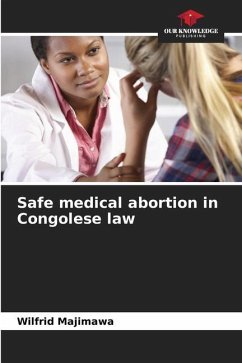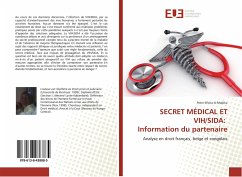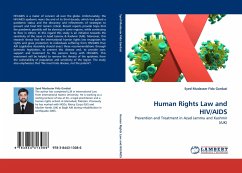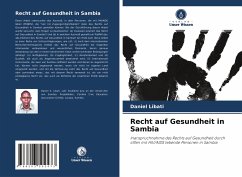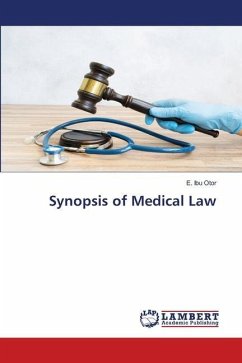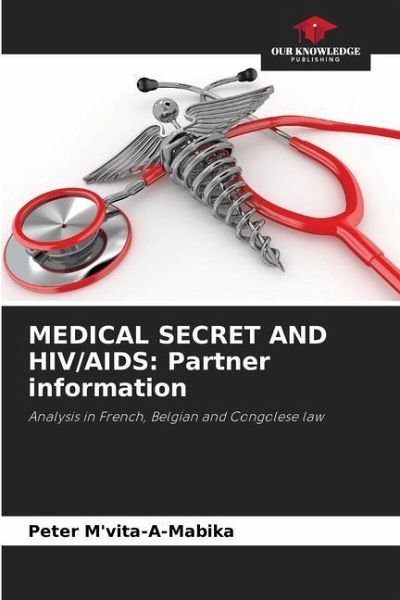
MEDICAL SECRET AND HIV/AIDS: Partner information
Analysis in French, Belgian and Congolese law
Versandkostenfrei!
Versandfertig in 6-10 Tagen
27,99 €
inkl. MwSt.

PAYBACK Punkte
14 °P sammeln!
Over the last few decades, the life-destroying power of HIV/AIDS has severely disrupted human activities. No field has been spared. This is particularly true of the law, which has found itself confronted with the many practical problems posed by this pandemic, to which it is not always easy to find adequate solutions. HIV/AIDS has given rise to many debates and divergent opinions on the relevance of modifying professional secrecy, given the lethal nature of the disease and the absence of therapeutic means. Reflecting on the ethical and legal relationship between doctors and patients, it is eas...
Over the last few decades, the life-destroying power of HIV/AIDS has severely disrupted human activities. No field has been spared. This is particularly true of the law, which has found itself confronted with the many practical problems posed by this pandemic, to which it is not always easy to find adequate solutions. HIV/AIDS has given rise to many debates and divergent opinions on the relevance of modifying professional secrecy, given the lethal nature of the disease and the absence of therapeutic means. Reflecting on the ethical and legal relationship between doctors and patients, it is easy to understand how a fundamental rule - that of medical confidentiality - is being put to the test in the face of the risk of the spread of HIV/AIDS. And the question is, of course, what attitude should a doctor adopt towards an HIV-positive patient who refuses to take appropriate measures to avoid contaminating his or her partner? In other words, where exactly does one draw the line between respecting confidentiality, a fundamental right, and not helping a person in danger?



